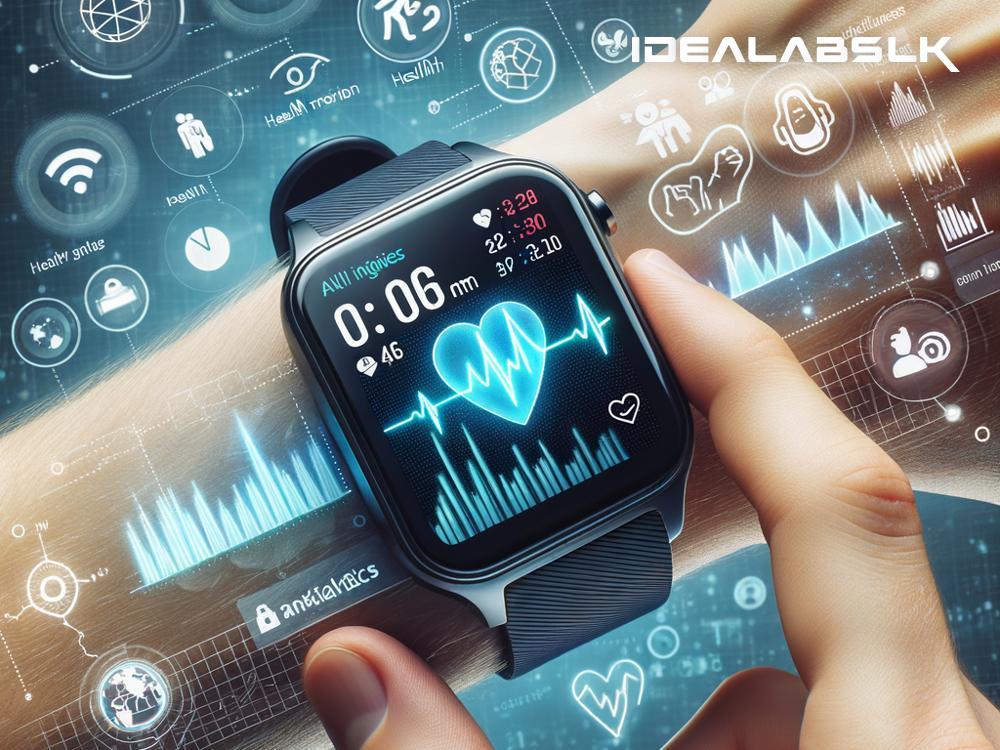How AI is Changing the Game in Wearable Health Devices for Adaptive Monitoring
Imagine a little gadget that not only tells time but also keeps an eye on your heartbeat, checks how well you slept last night, and even nudges you to move a bit if you've been sitting for too long. Well, such devices are not just part of our imagination anymore; they are very much a part of our everyday lives thanks to the incredible advancements in wearable health technology. But what's really exciting is how Artificial Intelligence (AI) is taking these gadgets to the next level, especially when it comes to adaptive monitoring. Let's dive in and see how.
The Heart of Wearable Health Devices: Adaptive Monitoring
At the core of wearable health devices is the concept of adaptive monitoring. This means these devices can not only track your health and fitness metrics but also adapt based on your unique patterns and needs. Think of it like having a personal health assistant that's learning about you constantly, getting smarter each day to serve you better. Whether it's tracking your steps, monitoring your heart rate, or analyzing your sleep patterns, these gadgets are designed to offer personalized insights.
The Role of AI in Making It Happen
AI is the powerhouse behind these sophisticated functions of wearable devices. How? Let's break it down:
1. Learning Your Patterns: AI algorithms are fantastic learners. They can analyze the data collected by your wearable device, like your daily step count, sleep quality, or heart rate fluctuations. Over time, they understand what's normal for you and what's not. This personalized baseline is crucial for adaptive monitoring.
2. Adaptive Insights: Once AI knows your patterns, it can offer tailored insights. For example, if your device notices that your stress levels seem higher on days you have less sleep, it can advise focusing more on rest to manage stress better. These insights are not generic; they are adapted specifically for you.
3. Predictive Health Management: Probably one of the coolest aspects of AI in wearable health devices is its ability to predict potential health issues before they become serious. By detecting subtle changes in your health metrics that might go unnoticed by you, the device can flag potential issues for early intervention.
Benefits of AI-powered Adaptive Monitoring in Wearable Health Devices
The integration of AI into wearable health devices for adaptive monitoring is not just a technological marvel; it's a boon for users. Here are some key benefits:
- Personalized Health Insights: Get recommendations and insights tailored specifically to your health needs and lifestyle habits.
- Early Detection of Health Issues: Detect potential health issues early, allowing for timely medical consultation and intervention.
- Enhanced Motivation and Engagement: Personalized feedback and goals can motivate users more effectively than generic targets, leading to better compliance and health outcomes.
- Convenience and Accessibility: Constant health monitoring without needing to visit a clinic or hospital, making health management more convenient and accessible.
Future Directions
The potential of AI in wearable health devices is huge, and we're just scratching the surface. Future advancements could include even more precise sensors, deeper levels of personalization, and better prediction models. We could see devices that not only monitor physical health but also offer insights into mental well-being.
Moreover, as these devices become more interconnected, the collective data could be used (with proper privacy safeguards) for extensive health research, potentially uncovering new insights into human health.
Conclusion
In a nutshell, AI's role in wearable health devices for adaptive monitoring is transforming how we approach personal health and fitness. By offering personalized insights, predicting potential health issues, and making health management more accessible, these devices are becoming indispensable tools in our quest for a healthier life. As technology continues to evolve, the future of wearable health technology looks incredibly promising, heralding a new era of personalized healthcare accessible to everyone.

